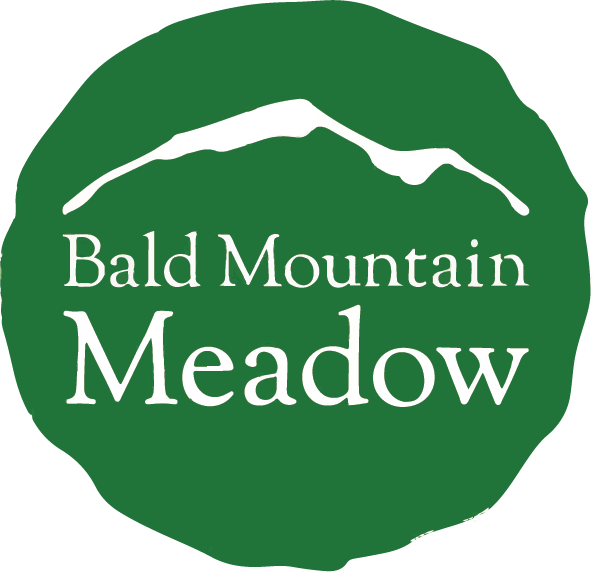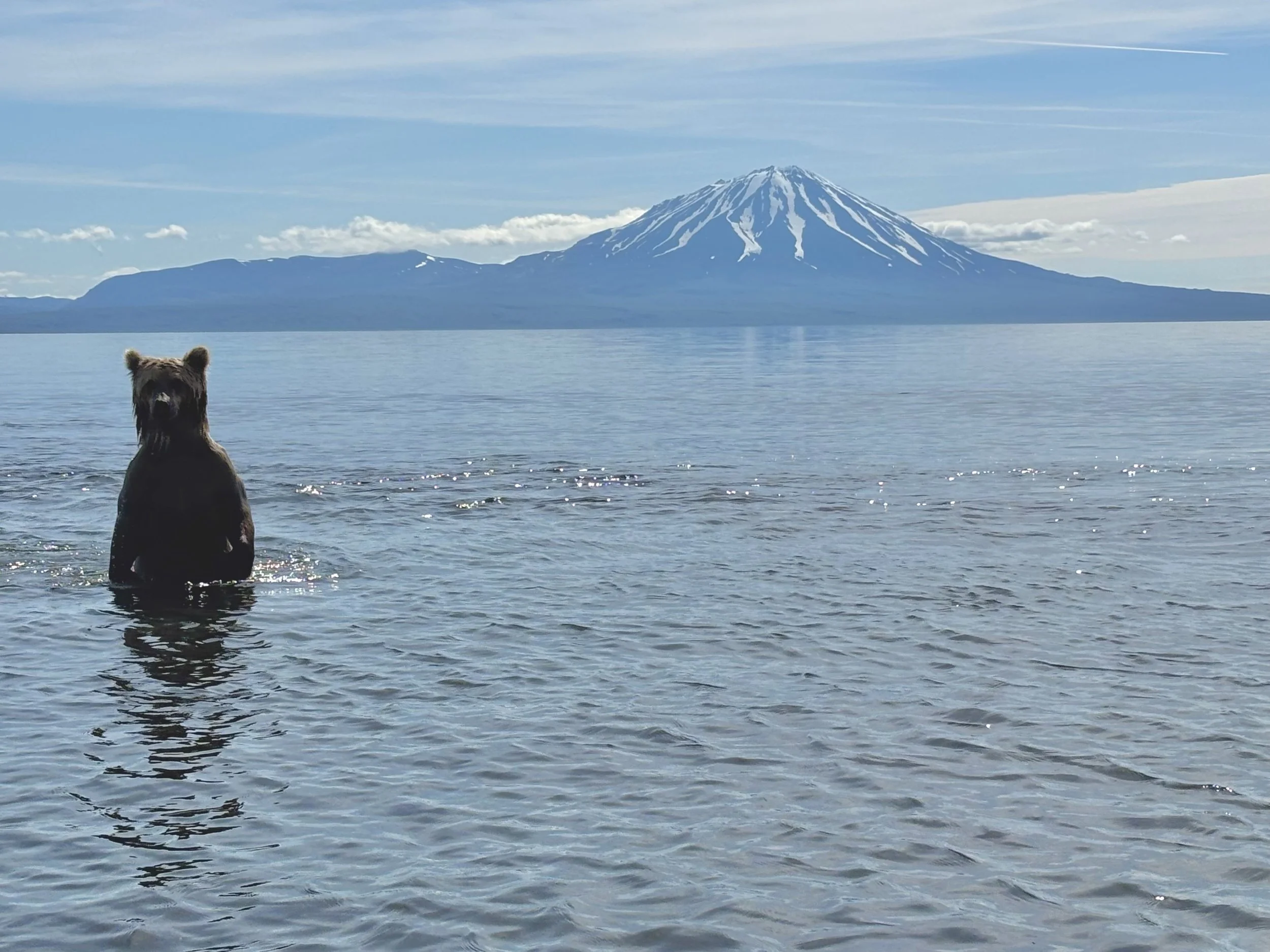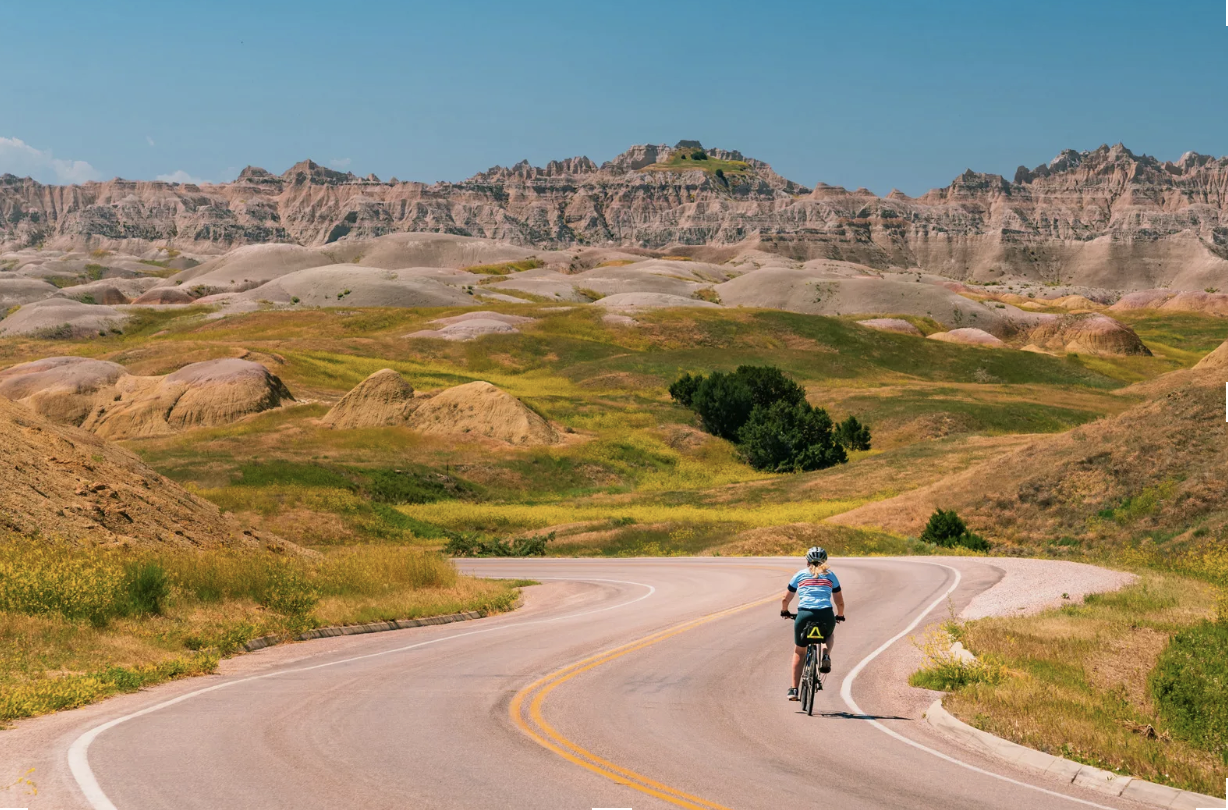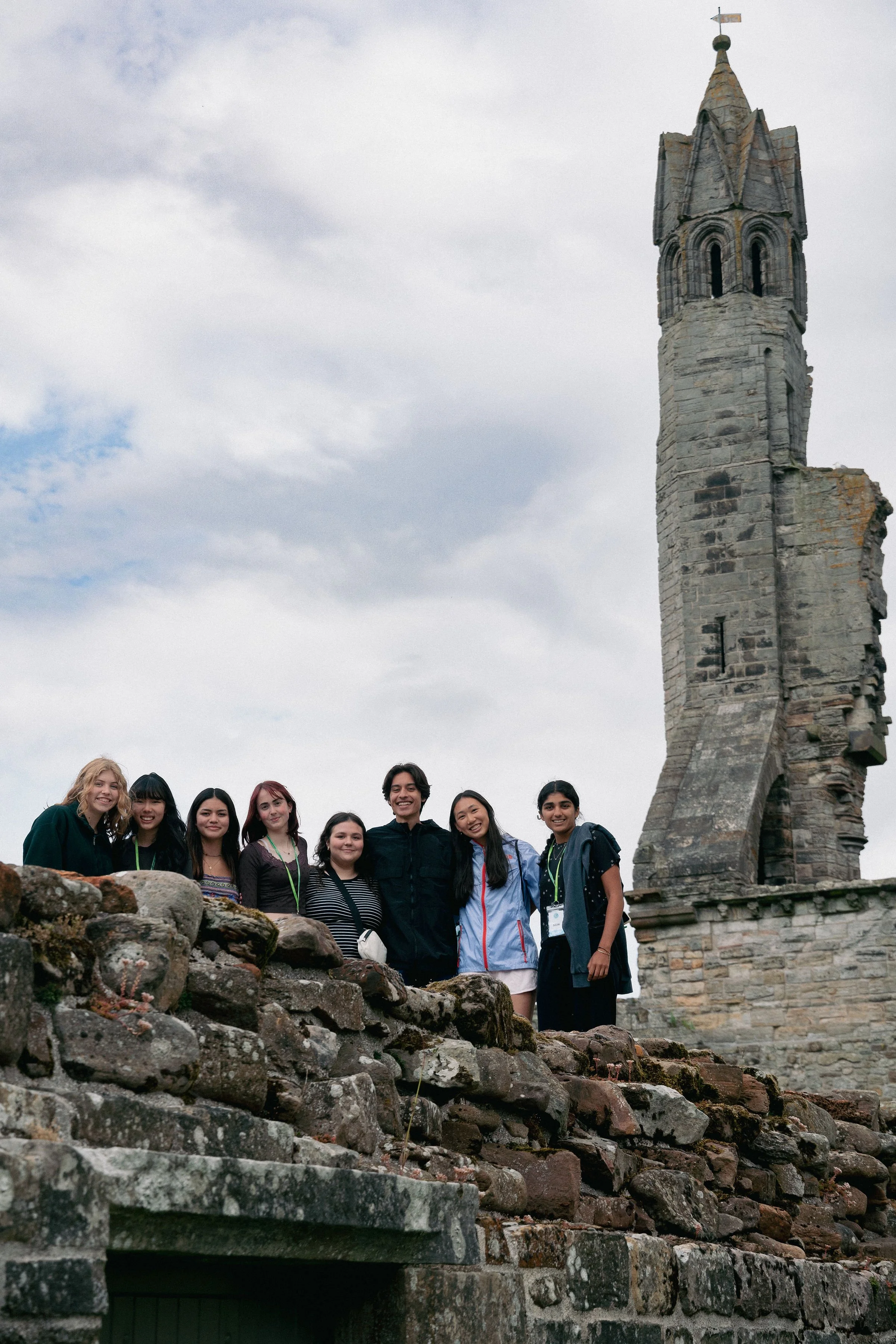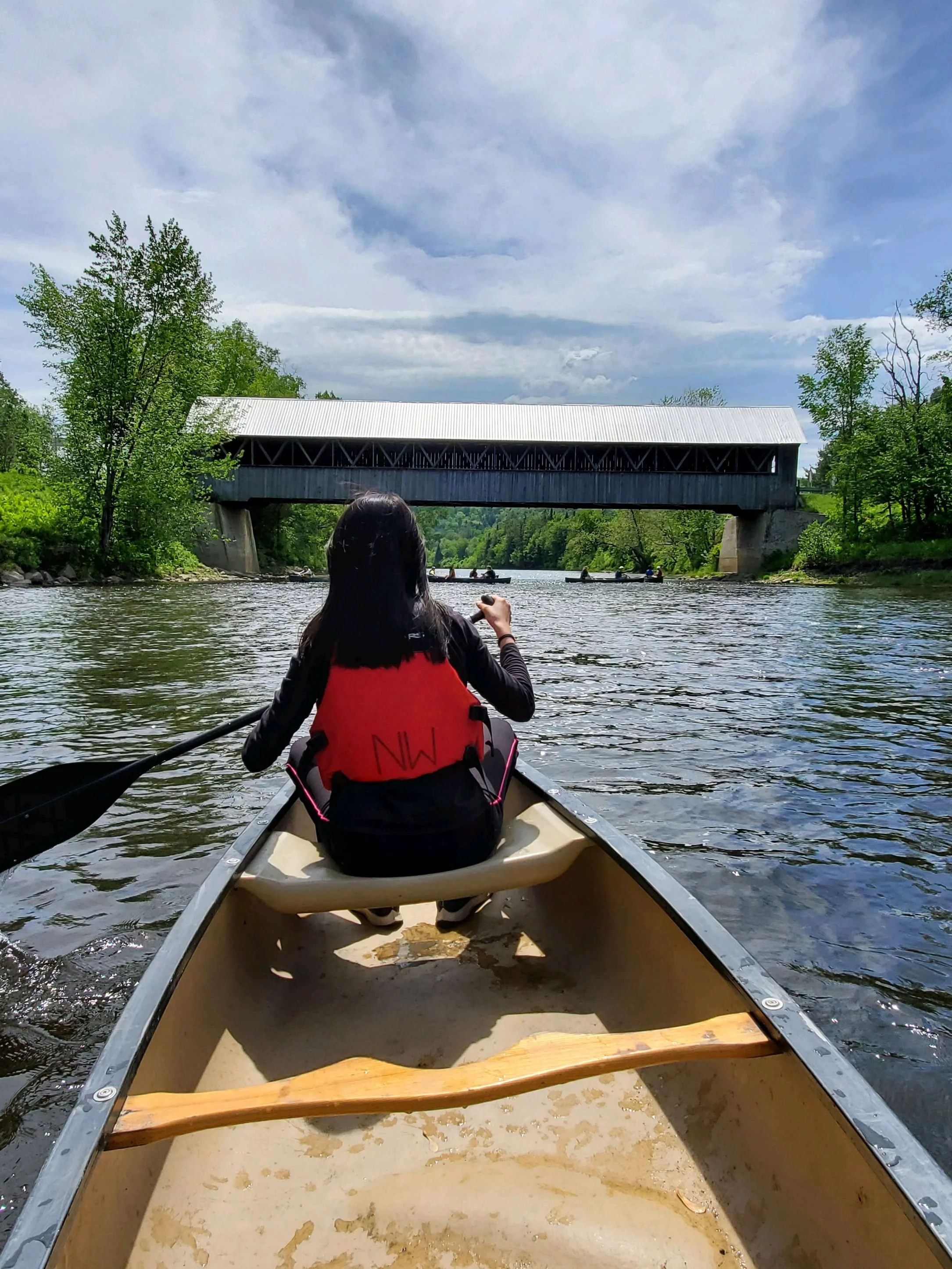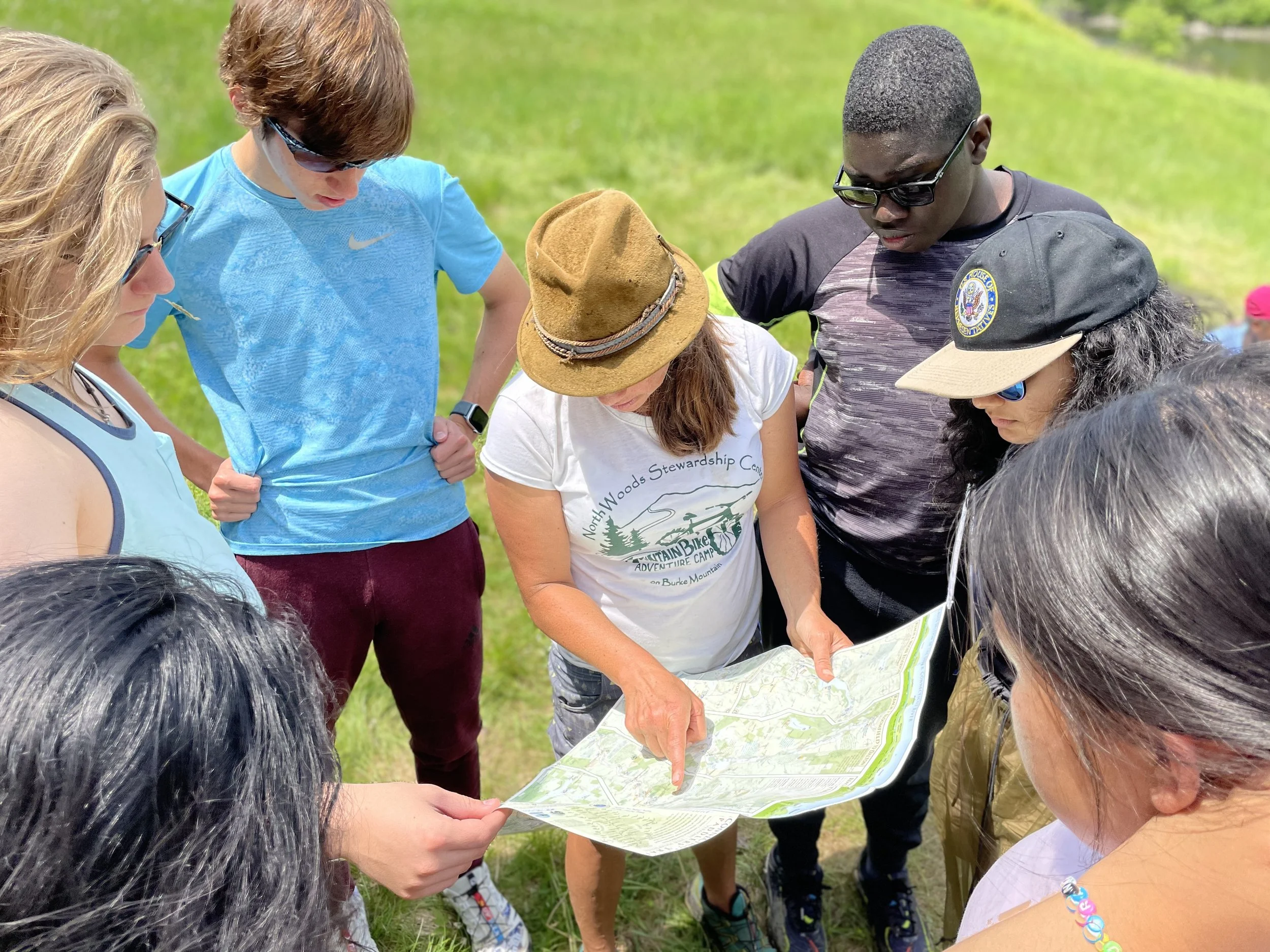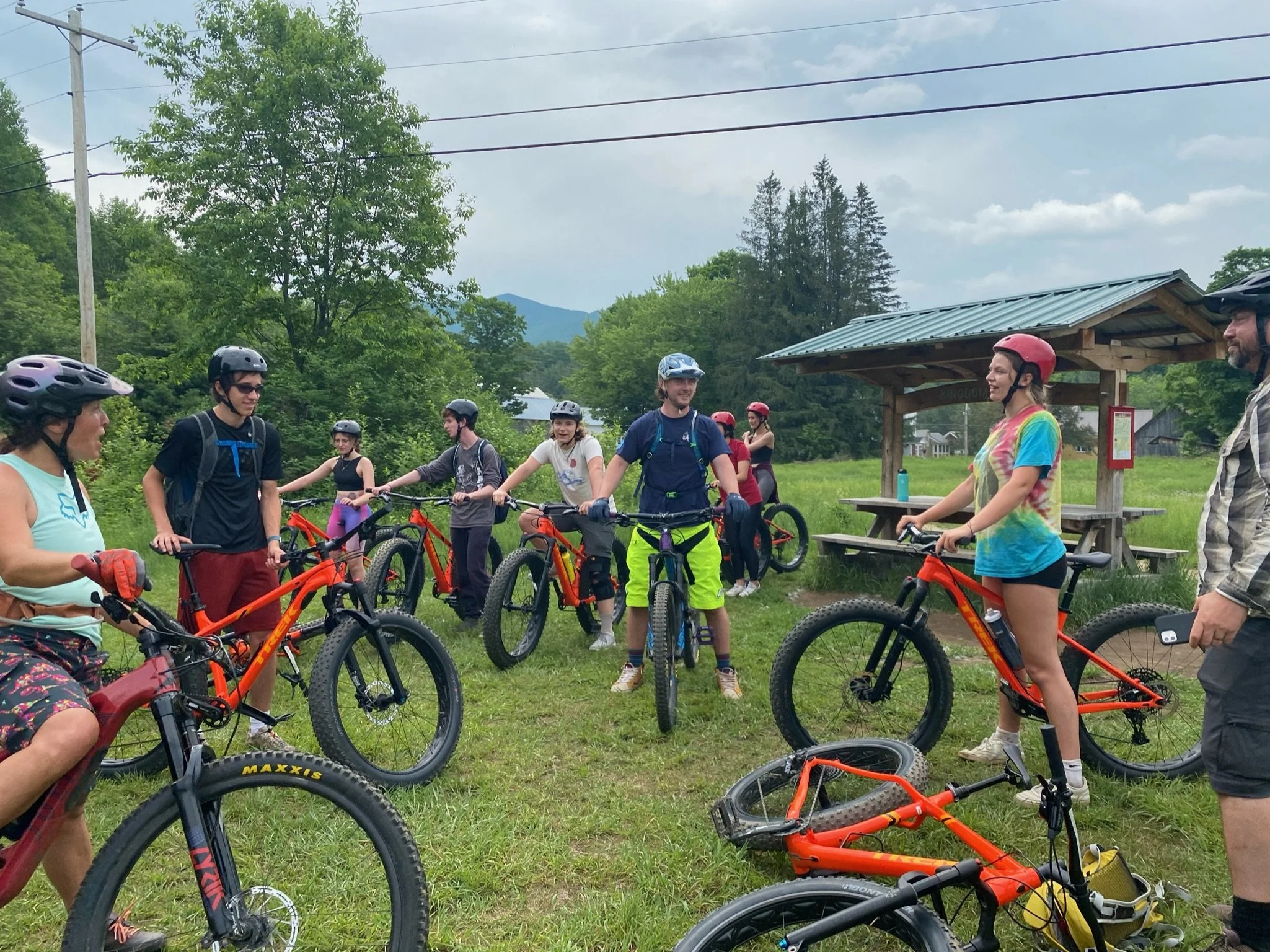Check out our interdisciplinary environmental learning expeditions for students. Looking for professional development opportunities for educators? Click here.
Programs for Students
Interested in creating a program for your students? Check out our programs below for inspiration and/or start a conversation.
SEARCHING FOR WILDNESS
in Alaska’s Bristol Bay
June 26 - July 6, 2026
NATIVE AMERICA: FRONTIER FACES
Deerfield Academy
May 2026
Native America: A 10-Day Interdisciplinary Biking Expedition with Bald Mountain Meadow
The ideas of kinship and personhood are embodied in the Lakota Sioux adage, mitakuyé oyás’i, “all are related.” This 10-day interdisciplinary biking expedition to South Dakota’s Mickelson Trail affords students the chance to explore the rich natural, historical, and cultural contours of this spectacular and complex western landscape that is the ancestral home of the Lakota Sioux. In addition to acquiring an array of expeditionary biking skills, students will visit Badlands and Wind Cave National Parks, Crazy Horse and Wounded Knee Memorials, Custer State Park, and Mount Rushmore as they ponder the textured history and culture endemic to this region. How is the Sioux notion of relationship between beings secured, and who benefits in its articulation? Where do we observe this relational paradigm most palpably? When is it legislated? How is it manifest? What complications arise - socially, legally, spiritually–in its expression? For us as a community of learners at Deerfield Academy, what insights, hopes and/or challenges might the idea of mitakuyé oyás’i offer us as we return to our campus in the fall?
As we contemplate these questions and more, we will supplement our discussions with various short readings from the likes of Leslie Marmon Silko’s Landscape, History, and the Pueblo Imagination and Black ElkSpeaks, among other texts, and with opportunities to connect firsthand with local individuals and organizations who will help us contemplate our trip’s core questions with greater complexity. In the end, students will emerge with a more nuanced understanding of indigenous history in the West, of the myriad issues facing the people who call this place home, and of how these stories might offer us new, powerful ways of thinking about our own home places, wherever they are.
Making Waves
CT River Schools Collaborative
June 2026
Making Waves: An Interdisciplinary Learning Expedition with Bald Mountain Meadow
Students from Deerfield Academy, Loomis Chaffee, and Northfield Mount Hermon will join together to participate in the Making Waves learning expedition– a multi-modality interdisciplinary learning adventure via hiking, rafting, and sea kayaking to explore the Penobscot River and Gulf of Maine watersheds. In order to extend our understanding of the Connecticut River watershed shared between these three schools, students will explore neighboring Maine watersheds as a way of gaining new perspectives and insights. By linking the Connecticut River and Maine watersheds in this way, students will join a wider community of local stewards, global citizens, and interconnected changemakers advocating for environmental conservation and justice.
Students will travel by boot, by raft, and by sea kayak, tracing the Penobscot River watershed from near its headwaters to the Gulf of Maine where it meets the sea in order to contemplate how human communities and natural ecosystems are impacted by and responding to the challenges of the 21st century. As we hike, float, and paddle, we will encounter firsthand the land, river, and seascapes of this region and the people who call it home, engaging with the complex narratives they tell. Our stops along the way will include prominent sites like Mount Katahdin, the Penobscot Nation at Indian Island, and the Island Institute and conversations with local experts in art, working waterfronts, ecology, and Indigenous culture, among others. These local stakeholders will help us contemplate how watersheds create living places and how people shape their lives and livelihoods within them. The program encourages students to explore the Maine coast’s significance through diverse perspectives, while fostering intellectual diversity through conversations across disciplines. By the time we pull our kayaks out of the water, we will have developed an intellectual, emotional, and embodied understanding of this place as both a socio-ecological entity and a metaphor for something larger--a paradigm, perhaps, for living well in a place wherever we go.
2026 Gci FELLOWSHIP
Global Citizens Init
July 19 - 27, 2026
2026 GCI Fellowship
Bald Mountain Meadow has partnered with Global Citizens Initiative to lead the 2026 GCI Fellowship. The program begins as 30 students from around the world gather at the University of St Andrews, Scotland for a 9-day immersion in discussion-based learning, design thinking, and human connectivity. An international team of faculty and speakers bring a diverse set of experience and approaches to creating positive change. Excursions along the Scottish coastline deepen our students connection to each other and to the place-based case studies in effective leadership and change-making to inspire new ways of addressing global issues at a local level. Students will workshop their individual plans for a “glocal” service project (GSP) in their home communities within the rigorous think tank created by our vibrant learning community.
Once students return home, they continue virtual sessions with GCI faculty and coaches to bring their GSPs to fruition. Each class of Fellows joins the vibrant, lifelong community of GCI Ambassadors leading change across the globe.
For more information and to apply, please click here.
Headwaters to Home: A Bioregional Learning Expedition in the ConnecticuT RiVER WATERSHED
Headwaters to Home: A Bioregional Learning Expedition in the Connecticut River Watershed
Dubbed the “long tidal river” by the Indigenous peoples of southern New England who lived and traveled on it, the Connecticut River is the longest river in New England, stretching more than 400 miles from the northern tip of New Hampshire, through Vermont, Massachusetts, and Connecticut on its way to Long Island Sound. For thousands of years, the Connecticut River’s resources have attracted inhabitants who have shaped the surrounding area in complex ways--sometimes for good, but often for ill. Today, the river flows in proximity to more than 2.4 million residents and over 400 communities, and many of us who call New England home consider it the most prominent ecological feature of our region. On this ten-day paddling trip, students and teachers will encounter the Connecticut River watershed, learn about its cultural and ecological histories, and begin to imagine how these stories can help map a better path forward through the challenges of the Anthropocene.
After a three-day orientation at Quimby Country Cottages in Vermont’s Northeast Kingdom, the group will depart the river’s headwaters by canoe, paddling south until we arrive back at Loomis Chaffee--at home. This interdisciplinary learning expedition will include days spent paddling and learning and nights spent sleeping alongside the river. As we paddle, we will encounter the river firsthand, engaging with the complex narratives it tells. Our stops along the way will include prominent sites and conversations with local experts in art, geology, hydrology, and Indigenous history and culture. These experts will help us contemplate how a river creates a living place and how people have made a home beside it. By the time we pull our boats out of the water back on campus, we will have developed an intellectual, emotional, and embodied understanding of this watershed as both an ecological entity and a metaphor for something larger--a paradigm for living well in a place wherever we go.
Spring Break in Maple Nation: SUGARING IN VERMONT’S NORTHEAST KINGDOM
Spring Break in Maple Nation: Sugaring in Vermont’s Northeast Kingdom
Are you looking for a truly distinct New England experience for spring break? Spring Break in Maple Nation revels in the ancient New England tradition of creating maple syrup.
The Abenaki believe maple sap is one of mother earth’s profoundest gifts, that from winter’s deepest darkness, when the threat of starvation loomed real, the earth gave to the people the gift of running sap, of sweet sustenance from the trees. During this trip, students will learn about the Abenaki history of sugaring as a model for a deeply-connected and sustainable relationship to a place. We’ll also examine various economic models that define the sugaring industry today, from small-scale “mom and pop” operations to the more controversial industrial-scale operation, Sweet Tree Holdings, the largest maple sugar operation in the world. Finally, we’ll try our hand at making our own syrup, working at Bald Mountain Meadow to tap trees, collect sap, and boil it down for syrup to enjoy on our pancakes, in our coffee, and in other recipes we concoct!
Along the way, we’ll meet and interact with various scientists, artists, educators, and entrepreneurs--all experts who will teach us the ins and outs of maple sugaring while helping us think through the nuances of its related complexities. How does climate change project the demise of the local sugaring industry, and what might a place do in the absence of one of its core regional signifiers? How does indigenous wisdom of er a paradigm for a sustainable future? Students will think deeply about these and other questions, about their relationships to the natural world, about how communities are linked to their landscapes, and about how our landscapes can feed us physically and spiritually. Sitting around the fire, breathing the sweet aroma of boiling sap, we will experience firsthand the particular magic of sap season.
And while the snow lasts, we’ll find other ways to celebrate the glories of late winter in Vermont. Sledding. Cross country skiing. Snowshoeing, Fat-tire biking. Our days will begin mid-morning, so participants can rest and recover after their winter term, and we’ll build in other enjoyable experiences to complement our sugaring –a trip to Burlington, for example; excursions to Local Donut and Galaxy Bookstore in Hardwick; a visit to Greensboro’s Highland Center for the Arts.
Land of Ice and Fire: People and Places of IcelanD
Land of Ice and Fire: People and Places of Iceland
Students on this trip will have an opportunity to immerse themselves in Icelandic history and culture while studying climate change and related environmental issues through the dual lenses of science and the humanities. Iceland is a fascinating place for a number of reasons—for the depth of its history and culture, for the uniqueness of its natural resources, and for its location on the frontlines of many climate change impacts.
We will explore both the culture and the landscape of Iceland and how the two are intertwined. Students will also learn about the ways in which Iceland is being affected by global environmental issues, climate change in particular. By discovering this deep sense of place in Iceland, students will leave the trip with a new ability to see those connections—between culture and nature, between humans and place—in their own communities. Moreover, students will gain a sense of how climate change is affecting both human culture and the natural world, and will bring that awareness to their continued studies at home, and beyond.
Over the course of this trip, students will visit a variety of important cultural and natural sites; they will interact with various experts, authors, and filmmakers; and they will engage in multiple adventures that will involve building collaborative skills and leadership abilities. Throughout the trip, students will also have opportunities to encounter various texts, like M Jackson’s The Secret Lives of Glaciers and Sjon’s The Blue Fox, and documentary films like “Ok”, “Chasing Ice”, and “Tomorrow” that will enhance their experiences on the ground and give them a sense of how Iceland has been represented historically and in the present day.
Writing Wild: A Place-Based Writing Enrichment Workshop
Writing Wild: A Place-Based Writing Enrichment Workshop
This week-long writing enrichment program in Vermont’s Northeast Kingdom leverages the power of place to help students to explore their own identities and develop powerful skills as writers. Hosted at a beautiful wilderness camp on Job’s Pond in Westmore, VT, students will engage in a variety of experiences designed to galvanize and inform their writing: hiking, camping, swimming, canoeing, mountain-biking, community-building. As they experience the land and the culture that arises from the land, students will participate in classes and workshops and attend literary readings designed to grow their skills as writers. And students will write, write, write--learning and practicing a breadth of skills that will make them more confident and self-reflective writers. Students on this trip will:
Read texts by a diverse range of authors who challenge them to think critically and curiously about writing and about their place in the more-than-human world
Embrace a process-based mentality rather than a product-based mentality
Experiment with and reflect on different writing processes as they find one that works for them
Hone their own voices as writers by incorporating into their writing various experiences and dimensions of their identities
Pursue an idea from an initial draft into a more fully realized piece
Share their writing with each other, both on the page and aloud
Experience moments of joy, delight, curiosity, and wonder in the act of writing
Cultivate a supportive community of writers that invites them to take intellectual risks
By the end of the week, students will emerge as far more competent and confident writers. Each student will produce one fully realized piece that they are excited to share with others. They will have thought deeply about both their approach to craft and their relationship to place--habits of mind that will travel with them back to campus and beyond.
environmental stewardship in Vermont
Environmental Stewardship in Vermont
Our smaller, crunchier neighbor to the west, located just across the Connecticut River, is fall foliage and spring maple sugar. But there’s more going on here than just postcard New England. Vermont is a place of deep connection to the rhythms of the natural world, a place of close communities living close to the land. Vermont asks those who visit it to think more deeply and with greater inspiration about the possibilities that exist for living well in the midst of today’s challenges, in short, to think about how to be a better steward. Robin Kimmerer, in her seminal work Braiding Sweetgrass, describes this sense of reciprocity as “mutual flourishing,” suggesting that there is a way to be in the world where the human and nonhuman worlds can thrive in concert. But what does this mutual flourishing actually look like, and what does it feel like to live it?
Using Quimby Country Cottages in Vermont’s Northeast Kingdom as a hub for our experiences and conversations, we will explore and live the idea of stewardship through the contexts of recreation and adventure, community and food, and the arts and sciences. Come mountain bike the famed Northeast Kingdom Trails while thinking about forestry management and ecotourism. Spend a day in the sun at Bald Mountain Meadow tending a garden while discussing sustainable agriculture, renewable energy, and community resilience. Hike to the summit of Bald Mountain for its 360-degree views of the Clyde River Valley, or paddle the Connecticut River and cast a line as you contemplate land-use history and climate change. Heft a rockbar with renowned Vermont writer Sean Prentiss while discussing his book Crosscut and the concept of wildness it explores. Our conversations and experiences will be myriad and informed by intentional encounters with Vermont and its people. In the end, you will emerge with a deep sense of place, of Vermont, and a template for engaging your own homes in ways that offer mutual flourishing to human and nonhuman communities wherever you find them.
Into Place with Bald Mountain Meadow and Hotchkiss’ Bridge Program
Into Place with Bald Mountain Meadow and Hotchkiss’ Bridge Program
Into Place is a three-day guided orientation for Hotchkiss students participating in the school’s Bridge Program. By creating a sense of welcoming and community; by sharing the story of northwestern Connecticut’s bioregion; and by giving students powerful firsthand encounters with their new home, this program will nurture a sense of belonging in students that will ground them as they navigate their Hotchkiss careers.
The program is designed to be gentle and welcoming in terms of the rigor of the outdoor experiences it affords–activities like team building exercises, fireside conversations, flatwater paddling, and hiking will help students make connections and gain trust. In this way, students will enter their Hotchkiss careers with an emerging sense of place, equipping them with the awareness of how they fit within that story, and the confidence to move forward with empathy, power, and grace.
Into Place is grounded in the practices of joy and connection–to place, to each other, and to community. In the end, students will begin to learn the story of this new place they will call home, creating a trove of positive new memories that will help it become theirs.
Rooted in Place: Practicing Wellness in Vermont’s Northeast Kingdom
Rooted in Place: Practicing Wellness in Vermont’s Northeast Kingdom
Vermont is a place of deep connection to the rhythms of the natural world, a place of close communities living close to the land. And Vermont asks those who visit it to think more deeply and with greater inspiration about the possibilities that exist for living well in the midst of today’s challenges, for living well in place. Hosted at a beautiful wilderness camp on Job’s Pond, in the heart of Vermont’s Northeast Kingdom, students on this trip will explore various paradigms for wellbeing and contemplate the ways in which a relationship to place often elicits a wellspring of wellness. Food. Adventure. Art. Ecology – these will be the lenses through which students will consider their relationship to place. Students will mountain bike the famous Kingdom Trails, swim in Lake Willoughby, and hike Bald Mountain; visit with local farmers and cook together with ingredients sourced from the immediate vicinity; engage with local artists like Bread and Puppet theater and Thompson Timber Framing and use those encounters to inspire their own artistic expressions; engage in wellness practices like yoga, meditation, and journaling at Bald Mountain Meadow. We’ll also make time for deliberate reflection, seeking to be present with these encounters and the ideas they stir. In this wild, remote landscape, students will deepen their connections to the land and its people, to one another, and, ultimately, to themselves.
